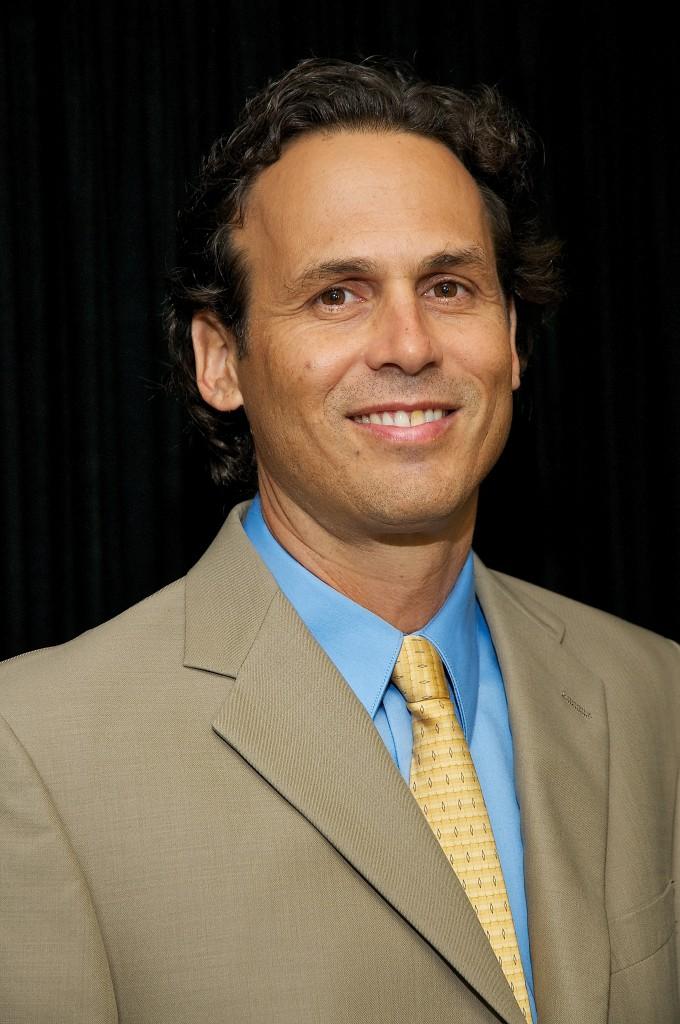San Diego State’s Department of Anthropology Chairman and author of SDSU’s historical book, “Hail Montezuma! The Hidden Treasure of SDSU” Seth Mallios offered The Aztec his perspective on topics from the campus during wartime to the relevancy of a student newspaper for the SDSU community. Mallios offers a reflection on the continuing tradition of The Aztec over the course of a century. With his insight, he reminds us of the weight of the phrase, “Aztecs for Life” and celebrates the accomplishment of a century of student-led journalism.
The Aztec: What is the influence of war on campus?
Seth Mallios: My first semester here was during 9/11. That was one of the first moments when I thought, “Sometimes your class has nothing to do with archaeology. Get over yourself, get over your syllabus, get over your curriculum. This is about life.” And I remember thinking about the role of the military at SDSU.
During WWI, the male population dropped to zero. All the men here were fighting. And then in the ‘30s, this place was firmly against the war, like most of the U.S. It was very isolationist. There was a peace rally that President Hepner gave everyone the day off for.The rallying cry was “Scholarships not Battleships.”
And then, the attack on Pearl Harbor, and immediately the campus changes. That’s where this campus suddenly becomes so pro-U.S. involvement in the war. Its funny because it completes reflects the nation. It goes from, we were isolationists when we hadn’t been attacked on our own soil and then everything changes. Not only was this campus more active than any other campus in the war movement, but then when the war is over, more vets use the G.I. Bill to come to SDSU than any other campus, at least in California. There are these great stories of 26-year-old war vets playing on the football team with 18-year-old freshmen kids.
You can look at the history of the school through the military, through the protests around Vietnam to the Students Veteran Organization and the incredible presence that the military has here.
TA: What is the legacy The Aztec has left?
SM: I think that one of the most important things is that when the paper was founded, President Black insisted that it be free from faculty control. You have it in your ledger: student-run, student-controlled. That’s really important because there’s lots of puppet papers out there. Hell, most of mainstream media is in some way puppeted.
Its not only a student-run paper, you know there’s a lot of superficial praise for anything student-done, its a student controlled paper, and that is the spirit of this place: its not students being told what to do. This has been a student voice, a legitimate student voice, that at times has made fun of things, emphasized things that were wrong, and really has been free spirited. That’s why I think its absolutely essential that it continue, in whatever format. I think that’s the most important legacy.
I think you also see the creativity. Some of the papers just have hilarious commentary on what’s going on. The research I was able to do on the original mascot, the Wampus Cat, is all from the newspaper. Without the paper over the past 100 years, all of that is lost.
Quite honestly, this is a far more boring place without the newspaper to chronicle that. The reason universities are such exciting places is that you get all these people here and you have no idea what they are going to end up doing. There is more potential on a university campus than anywhere else and that is captured in the newspaper and virtually no where else.
TA: What is the legacy you hope we continue to leave?
SM: I think the first thing is accuracy. There is a lot of revisionist history that goes around here, and it’s pretty disturbing. There aren’t a lot of people that know the history and a lot of times people use history for their own agenda. The pressure is on all of us, to show why the past is so relevant.
Second, and this one may be obvious, but that doesn’t make it any less important, [is that] so many of you have gone on from The Aztec to any number of current media positions. You guys have the best track records out of anybody.
Part of the legacy also is the burden of the future. I fear any institution that doesn’t have any kind of watchdog. Its terrifying across the board, as budget cuts come, those that force a group to be honest get cut first. That’s the role you all play. That’s the power of the op-ed piece. You don’t have to worry about that disagreement because you have one hundred years to back you up. You guys have the continuity that virtually no one else does. That’s powerful.
Courtesy of Seth Mallios









